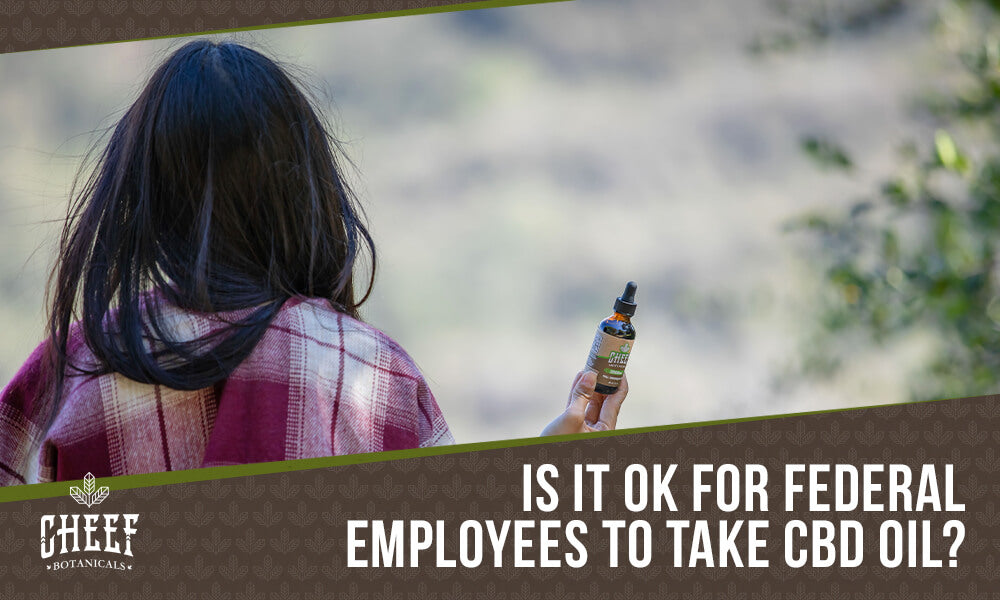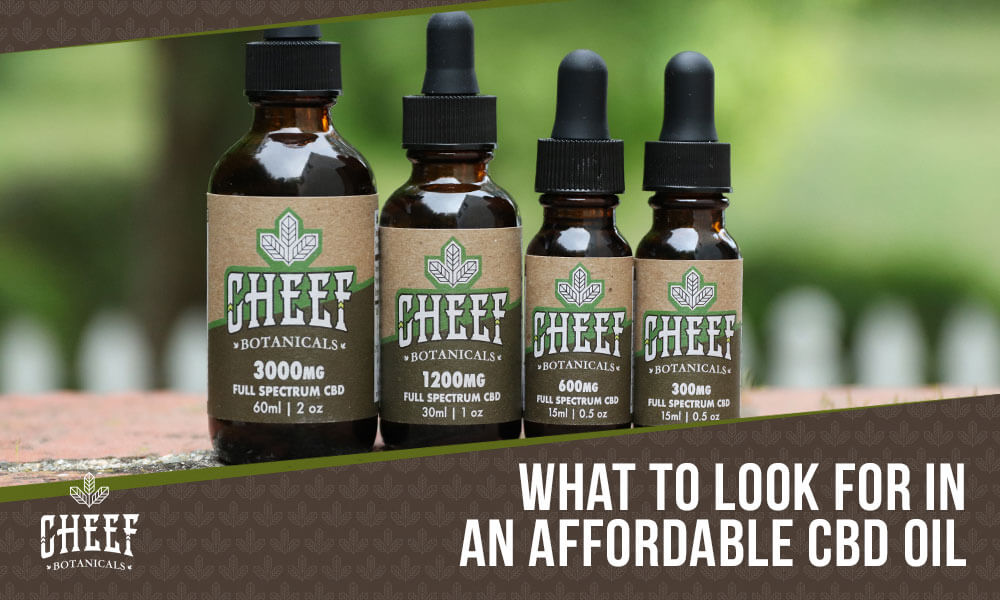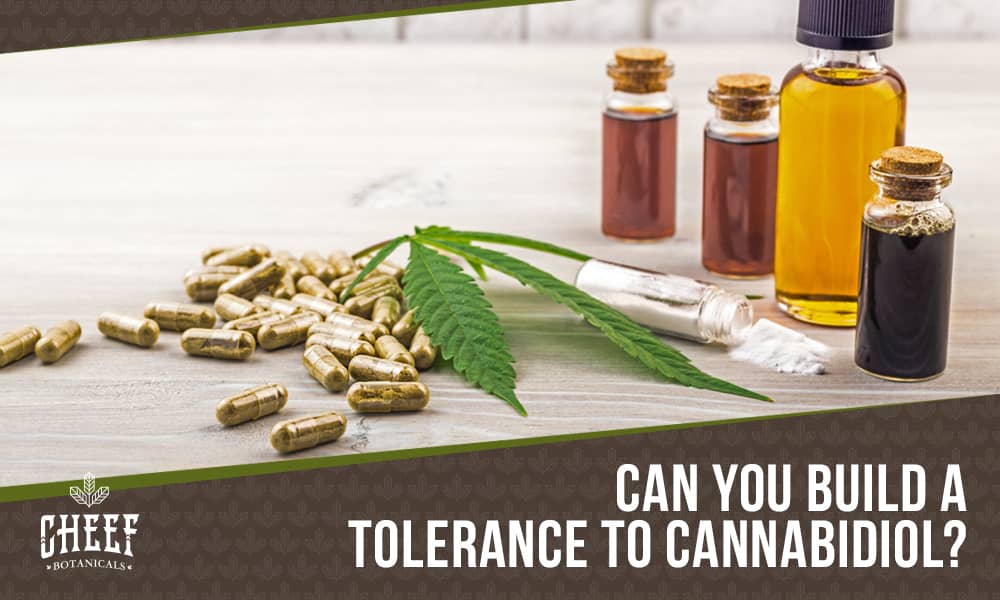The 2018 Farm Bill for Federal Employees
The 2018 Farm Bill marked a significant milestone for the legality of cannabis plants and their derived products. Aimed at reintroducing hemp to the American market, the bill allowed for the cultivation of Cannabis plants with a THC content of 0.03% or less.
This legislation not only legalized the production of hemp plants but also any product derived from hemp that meets the specified legal standard. Given that CBD is a prominent cannabinoid in hemp plants, this enabled the creation of various CBD products, including topicals (creams and ointments), hemp flower, vaporizer oil, and edibles containing high amounts of therapeutic CBD.
Under federal law, it is legal to use or consume hemp-derived CBD as long as it contains no more than 0.03% THC. This legal framework theoretically applies to federal employees, allowing them to use legal CBD products without worry. However, in practice, the situation is more complicated.
Is CBD Oil Legal?
Yes, under federal law CBD oil, from hemp, is legal for use in the United States of America. The 2018 Farm Bill legalized the growth, distribution, and sale of hemp on a federal level. Hemp is cannabis grown with no more than 0.3% THC, which is the intoxicating element associated with the plant (CBD flower). The use of CBD has increased exponentially since the bill passed. Cannabidiol is legal, but not fully regulated. That means the industry is widely free to operate (within specific guidelines) without FDA approval.Is CBD Oil Regulated?
Cannabidiol is only partially regulated by law. Growers, distributors, and consumers must stick to particular outlines to make sure they stay within legal limits. Still, because the FDA does no regulatory oversight in the process, there are products out there that may not be reputable. That can go either way for consumers. They could buy a product labeled CBD that has none in it at all, or buy a product labeled CBD that has a decent percentage of THC in it. Both of these are non-reputable practices for a business, as they should be making sure to provide consumers with a good and honest product. Unfortunately, not all businesses operate with this mentality.
What is in CBD Oil?
CBD oil has become very popular since the passing of the 2018 Farm Bill. This has left many consumers with questions about the product. Cannabidiol comes from the cannabis plant. Unlike its cousin, THC, cannabidiol has no intoxicating effects. Experts extract CBD from the cannabis plant, but then mix it with a carrier oil. Carrier oils’ purpose is to dilute products that are not easily absorbed by the body. They get their name because they help carry essential oils into the body. Coconut and hemp seed oil are two of the most popular carrier oils in the industry. When mixed with a fatty plant-based carrier oil, CBD binds to fat molecules, which are easier for the body to break down and absorb. CBD oil can come in three different varieties: Full spectrum, broad spectrum, and isolate. Depending on your purpose of use, each has its benefits.Full Spectrum
Full spectrum CBD products contain all of the cannabinoids in the cannabis plant, including THC. When all the cannabinoids and terpenes work together, they create the entourage effect. This is the highest form of benefit a consumer can achieve. Only trace amounts (0.3% or less) of THC are legally permitted to be in full spectrum products. Although this amount is minimal, taking full spectrum products may result in a positive drug test for THC. You can learn about CBD facts here.Broad Spectrum
Broad spectrum CBD products contain all of the cannabinoids in the cannabis plant, excluding THC. This product is typically purchased by consumers who may have drug testing, because there is no THC in it. There is still an entourage effect with broad spectrum CBD use.Isolates
CBD isolates made from hemp are the purest form of the product. They contain virtually no other cannabinoids that are in the cannabis plant. Cannabidiol isolates provide consumers with just CBD, and none of the extra cannabinoids, terpenes, or flavonoids. Because of this, isolates are also a choice product for those who may need to take a drug test. Keep in mind that since the FDA is not actively regulating companies and their products, broad spectrum CBD and CBD isolates may contain trace amounts of THC. Reputable companies will make sure that their products fit the proper guidelines though, so consumers should make sure to stick to trusted brands and products. If it looks too good to be true, consumers should stay away from those products. For example, if any product promises super high amounts of cannabidiol at an extremely low price, you should be cautious. Also, companies that hide their labels, do not include the ingredients, or do not get third party lab testing should never be trusted.What Hemp Products Can Federal Employees Use?
Fortunately, federal workers can still enjoy many legal hemp products. For example, any products made from hemp seed oil or hemp fiber can be consumed without worry. Products like this include:- Topical products like hemp-based skincare, haircare, or makeup (i.e., lotions, shampoo and conditioner, acne-fighting products, lip balms, nail polish)
- Industrial hemp (i.e., clothing and shoes, bags, plastic materials, paper, paint, fuel)
- Hemp foods (i.e., protein powder, cooking oil, hemp milk, butter, hemp cheese, chocolate)
Can Federal Employees Use CBD Oil?
Despite federal law, federal employees have been warned against using cannabidiol. The US Army, The Department of Defense, The Coast Guard, The Marines, and NASA have sent memos to their workers reminding them of no tolerance rules when it comes to THC. The memos were prompted by the legalization of hemp and the growing popularity of cannabidiol. The federal government’s recent concern comes after The Substance Abuse and Mental Health Services Administration (SAMHSA) sent out a notice stating that the “the Food and Drug Administration does not certify levels of THC in the products.” “Under theSo, is CBD legal for federal employees? Well, this puts federal workers in a tough spot. Although broad spectrum and isolate products should not contain any THC, there may still be risks involved. Remember, trace amounts of THC may cause positive drug tests. Unfortunately, there are horror stories of workers in the federal government taking cannabidiol and losing their jobs after drug testing.
How Are Hemp Products Good for the Environment?
According to Rodale Institute (a nonprofit that supports organic farming), using hemp instead of other building materials can reduce environmental emissions and prevent other toxic chemicals from being released into the atmosphere. Not only that, but hemp is incredibly durable and is even known to be stronger than steel. Consuming hemp in any capacity is almost great for the environment and is something to be proud of!How Are Hemp Products Good for My Body?
Hemp seed oil is also great for your body when orally consumed. Since it's so high in different kinds of linoleic acids, studies have shown that adding hemp seed oil to your diet can help to lower cholesterol and improve your overall heart health. This can help decrease your risk of experiencing high blood pressure, stroke, or other heart issues. Hemp seeds themselves are also a great source of protein and are known to help ease symptoms of PMS and menopause. This is because gamma-linoleic acid (or GLA) produces compounds known to help manage hormone imbalances and other side effects associated with changes in menstrual cycles.But What About CBD Products?
Isolate-based CBD products may also be okay to use but should still be used with caution. If manufactured correctly, these products should have 0% THC content. But, since these products are not fully regulated yet, it can't be guaranteed that they'll be THC-free. This is why it's so important to buy CBD hemp products from established brands that maintain high standards, like Cheef Botanicals. When you buy from smaller, newer, or lesser-known brands, it becomes harder to determine things like what your CBD products contain or whether they're actually derived from hemp instead of marijuana.Will Federal Employees Ever Be Able To Use CBD?
The more CBD becomes widely recognized and consumed by the general public and government, the higher the chance it may become legal for federal employees to use in the future. These chances also increase as the manufacturing of CBD becomes more regulated by the federal government. Only time will be able to tell how policies will shift!What Can I Do to Help?
One of the best ways that you can help increase the chances of legalization for federal employees is by using your voice to help invoke change. Aside from voting and participating in local politics, you can also write a letter to your Legislator or State Representative. Never written one before? Here's a sample template that'll walk you through how!Who Is Considered a Federal Employee?
Federal employees are those who work for the federal government. To become a federal employee, one must be at least 18 years of age, be a Citizen of the United States, and have certain qualifications for the role. Below is a brief rundown on who qualifies as a federal employee:- Politicians, judges, and those employed in the Department of Justice (sometimes, lawyers too!)
- Department heads (i.e., the Labor Department)
- Clerical workers (i.e., secretaries, accountants, etc.)
- Those employed by and within the military
- Other civilians who work in/as:
- Department of Health and Human Services workers (i.e., food safety workers, environmental safety workers, those in mental health services administration, and sometimes nurses)
- Law enforcement (i.e., US Marshals, those in the Drug Enforcement Administration, agents within the CIA and FBI)
- Scientific fields (i.e., NASA employs federal employees)
- Civil servants (i.e., federal firefighters)
 Anyone can determine these distinctions by whether your state hired you. For example, while teachers in the United States are classified as government employees, they're not usually federal employees. This is because their local government often employs them. Post Office employees are also not technically federal employees, even though they receive federal benefits.
One way to learn if you're a federal employee is by asking yourself, does my job position fall under one of the three branches of the US government? If so, you're likely a federal employee. If you're unsure, it may be worth asking your employer or doing some research to determine whether your federal employment status.
Anyone can determine these distinctions by whether your state hired you. For example, while teachers in the United States are classified as government employees, they're not usually federal employees. This is because their local government often employs them. Post Office employees are also not technically federal employees, even though they receive federal benefits.
One way to learn if you're a federal employee is by asking yourself, does my job position fall under one of the three branches of the US government? If so, you're likely a federal employee. If you're unsure, it may be worth asking your employer or doing some research to determine whether your federal employment status.



 CBD Gummies - Top Seller
CBD Gummies - Top Seller
 CBD + THC Gummy - Excellent Choice
CBD + THC Gummy - Excellent Choice
 CBD Hemp Flower - Highly Rated
CBD Hemp Flower - Highly Rated
 Full Spectrum CBD Oil - Good Value
Full Spectrum CBD Oil - Good Value



Leave a comment
This site is protected by hCaptcha and the hCaptcha Privacy Policy and Terms of Service apply.